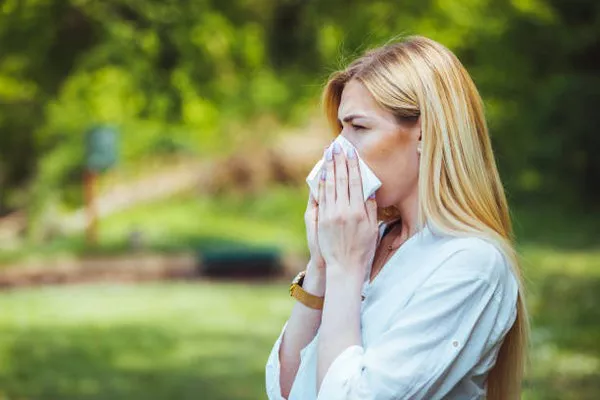A new study presented at the American College of Allergy, Asthma and Immunology (ACAAI) Annual Scientific Meeting in Boston reveals that climate change is driving an increase in pollen and mold sensitivities among nasal allergy sufferers in Chicago. Researchers found a marked rise in allergic sensitization, a process in which the body creates antibodies in response to allergens like pollen and mold spores, leading to increased allergy cases.
This retrospective study reviewed the medical records of Chicago patients with nasal allergies between 2014 and 2024. Using blood test data and examining characteristics like age, gender, and other allergic conditions, the research team compared allergic responses over two distinct periods: 2014-2019 (pre-COVID) and 2022-2024 (post-COVID).
The analysis included data from 1,052 patients and showed a substantial increase in sensitivity to outdoor allergens in the post-COVID period. Specifically, sensitivity to tree pollen increased from 49.3% to 69.8%, weed pollen from 54.1% to 76.1%, grass pollen from 57.7% to 100%, and mold from 46.5% to 76.7%. However, sensitivities to common indoor allergens such as pet dander (cat and dog) remained relatively stable across both timeframes.
According to the authors, the growing sensitivity to outdoor allergens may be tied to shifts in pollen and mold patterns driven by rising temperatures, increased rainfall, and elevated water levels in Chicago due to climate change. These environmental changes, they argue, are contributing to prolonged pollen seasons and greater allergen exposure.
“This increased sensitivity may be due to changing patterns of pollen and mold proliferation secondary to increased temperatures, rainfall, and rising water levels that Chicago has been experiencing due to climate change,” the researchers concluded. They emphasize the need for further research to explore the full impact of climate change on allergic sensitization to airborne allergens.
You Might Be Interested In:
-
DNA Analysis Surpasses Standard Newborn Screening, Study Reveals
-
Could Folic Acid Be the Key to Protecting Your Baby From Lead and Autism?
-
Study Warns Allergy and Asthma Patients of Risks Associated with Burning Incense


